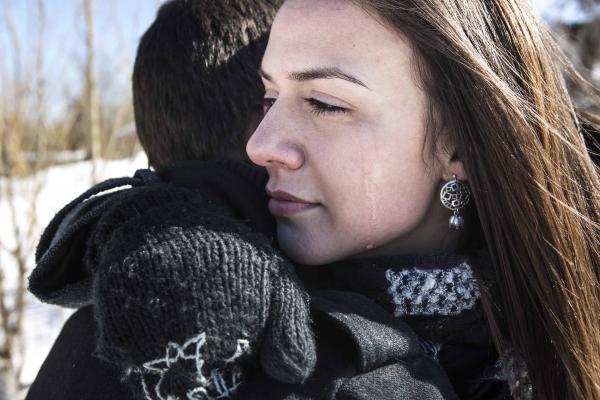
No one goes hunting for their prince or princess charming and says, "Hmmm. I think I will choose someone who is so controlling, so no matter how hard I try I will never meet their expectations until slowly over time I will spend every day trying to keep the peace." So how do people get trapped in these relationships?
There is an old story about frogs: The tale goes, If you put a frog in boiling water it will jump right out. But, if you put it in temped water and slowly raise the temperature, the frog will gradually boil to death. This it also goes for many abusive relationships.
Advocates of intimate partner abuse survivors hear their clients wish to go back to "the way it was when we first met." Victims also minimize their experiences and point out that the perpetrator hasn't hit them, but then describe blackmail, threats, revenge porn and other ways they are being controlled by their abuser.
Why do they want control?
Most abusers feel the need to control their victims. There are many theories as to why including:
-
Low self-esteem and fear that the victim will leave them
-
Societal norms or a belief that it is a man's right to control his partner
-
Fear of losing the victim
-
They believe it is acceptable
Dr. Evan Stark stated that many survivors are not physically harmed in the manner we see in the news or movies. He explained that a growing body of evidence points to abusers using coercive control. "Some of the tactics used in coercive control are criminal offenses, such as stalking... But most tactics used in coercive control have no legal standing, are rarely identified with abuse..." He also points out that if seen from the outside, they may simply look like a bad marriage, but looking at these realtionship patterns as a whole reveals abuse. Thanks to Dr. Stark's work and the work of others, the legal system has begun putting laws in place that fit with more subtle forms of abuse.
Even though being demanding, controlling or manipulative isn't a crime; some of the things abusers do to their victims are against the law.
6 things that may be against the law where you live
There is federal law - things that are against the law in all 50 states - and there is state law - things that are against the law depending on the state. Crimes listed below are against the law in many, if not all states. You can call the National Domestic Violence Hotline at 1-800-799-SAFE (7233) to reach someone for legal advice in your state. Only a lawyer can give you legal advice.
Harassment
In some states, it is illegal to threaten an intimate partner with bodily harm if the threat can be carried immediately. For example, if your partner tells you they will kill you and then describes how and it is credible or possible they could do it. In some states, a threat that involves a gun or weapon is called Menacing and is an additional crime. Four percent of intimate partner violence survivors report being threatened with a gun.
Coercion
Isolation or controlling the victim's movements is common for abusers. The crime of coercion occurs when an abuser keeps a victim from being able to come and go freely. For example, the abuser locks the victim in the house and refuses to let them leave until they do what the abuser wants or until the abuser can go with them.
Kidnapping
If your partner transports you against your will it can be deemed kidnapping. For example, the abuser decides you are embarrassing them in public, forces you to get into the car and drives you to their home or to a place where they hold you against your will. Abusers will sometimes say it is for your own good and they are protecting you from yourself.
Interfering with a 911 call
In many states, it is now illegal to stop someone from calling for help. If you are arguing with a partner and decide to call for help, if they break your phone or take it away while you're dialing 911, that may be a crime depending on which state you live in.
Revenge Porn
Laws vary state by state, however, it is now illegal in most states to post revenge porn on social media and other sites. Abusers may threaten to show photographs, audio, videos or other pictures they have captured knowingly or without consent to blackmail or maintain control of their intimate partner.
Withholding necessary resources
In some states, if you have a disability or are elderly and your intimate partner withholds medications or other items necessary for your survival, it is a crime. For example, abusers will sometimes take medication, food, telephones, computers and other ways to call for help with them when they leave for work as a method of controlling their partner.
What can you do?
Do you ever find yourself saying, "Well, at least they don't hit me?" You're not alone. There is help. Dr. Stark also reported, "There is mounting evidence that the level of 'control' in abusive relationships is a better predictor than prior assaults of future sexual assault and of severe and fatal violence."
If you feel like a slow boiling frog and you are concerned for your safety, find a safe phone in a neutral location and reach out for help. If you choose to use your computer, be aware your perpetrator may have software tracking your keystrokes or other ways of knowing what you do. The National Domestic Violence Hotline - 1-800-799-SAFE (7233) - can help you find resources near you.

